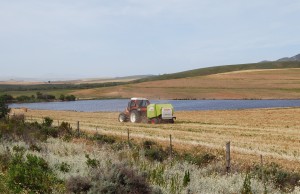CHAPTER < NINE – RETHINKING BASIC ASSUMPTIONS
“The significant problems we face cannot be solved at the same level of thinking we were at when we created them.” Physicist Albert Einstein
 There is so much to understand about the incredible planet on which we live and depend. Its marvellous complexity still astounds us. Its moods have shaped our existence over millions of years, honing us into a race of wanderers and making us masters of change. It is an integral part of who and what we are. Yet the margins of our survival on planet Earth have become disconcertingly narrow. In spite of our advanced technology we are vulnerable to many natural and man-made factors: factors such as geological upheavals, extreme global weather variability, soil depletion, water stress, ozone thinning, ocean pollution, rising background radiation levels, dwindling natural resources, overpopulation, disease and rising nationalist aggression. Of these various factors, some are beyond our ability to control and others not.
There is so much to understand about the incredible planet on which we live and depend. Its marvellous complexity still astounds us. Its moods have shaped our existence over millions of years, honing us into a race of wanderers and making us masters of change. It is an integral part of who and what we are. Yet the margins of our survival on planet Earth have become disconcertingly narrow. In spite of our advanced technology we are vulnerable to many natural and man-made factors: factors such as geological upheavals, extreme global weather variability, soil depletion, water stress, ozone thinning, ocean pollution, rising background radiation levels, dwindling natural resources, overpopulation, disease and rising nationalist aggression. Of these various factors, some are beyond our ability to control and others not.
Because of our vast and unwieldy numbers, we are not able to move about the Earth as freely as we once did. Therefore, as we no longer have recourse to the traditional migratory survival strategy of our ancestors, our challenge is to stay and find a way around our problems, and the primary means at our disposal for finding sustainable solutions to these problems is our universal mind – a resource of epically powerful dimension.
Recognising that we are as much alive as we keep the Earth alive, there is much that we can do to influence our future and it all begins with how we think about our position on this planet. We are not the first generation of Homo sapiens sapiens to have befouled the Earth. The Roman historian, Pliny, observed that, “It is true that the Earth brought forth poisons, but who discovered them except Man? … It is not unusual for us to poison rivers and the very elements of which the world is made; even the air itself, in which all things live, we corrupt till it injures and destroys.”
From this observation it is clear that the process of planetary contamination has been carried out by many past cultures over a long period of time and admittedly there is a certain amount of comfort in this fact, indicating as it does, that not all planetary woes can be laid at our door. However, what differentiates modern societies of people from others that have preceded us is a deep well of ecological awareness and concern, as well as significant levels of scientific and technological knowledge that were not available to previous cultures, but which we have been able to benefit from.
 And although we are the first generations of Homo sapiens sapiens to have intentionally intervened in the process of planetary destruction, implementing initiatives to protect our planet from further pollution and other damaging practices. In effect we have little option but to correct the imbalances between planetary systems and the way we interrelate with them, because unlike the times that other peoples lived in, the margins of our survival have become progressively narrower, making our survival on this planet a matter of grave concern.
And although we are the first generations of Homo sapiens sapiens to have intentionally intervened in the process of planetary destruction, implementing initiatives to protect our planet from further pollution and other damaging practices. In effect we have little option but to correct the imbalances between planetary systems and the way we interrelate with them, because unlike the times that other peoples lived in, the margins of our survival have become progressively narrower, making our survival on this planet a matter of grave concern.
Time and circumstances are no longer on our side. In the time ahead our thought patterns and cultural biases will redefine global survival, and hopefully beyond that, worldwide prosperity. However if we are to avoid ecological impoverishment in the present and with it powerful transnational tensions and conflict; practices such as “discounting over distance”, a practice whereby some nations of the world expropriate resources from other geographical areas without any consideration for the impact of such a practice on the regions from which the resources were taken, are patently no longer appropriate. Environmental depletion, whether it is legally or illegally carried out on a nation’s doorstep or executed far away from home, is of equal consequence. For in a world that is precariously poised it has now become a dangerous practice for out of sight to signify out of mind…
Unequal Resource Distribution
Goethe stated that, “In order to spend on one side, nature is forced to economise on the other”. Ecological bankruptcy is a powerful potential destabilising factor, yet no international agreement is yet in place to fully regulate the maintenance of the Earth’s resource base. Global per capita use of resources is currently all out of kilter, with some countries utilising resources sparingly while others consume resources wastefully and unsustainably according to their means. This reality translates into a widening gap of consumption levels between the rich and poor nations and between wealthy and impoverished people; with the most affluent top per cent of the world’s people consuming unsustainable quantities of resources whilst the world’s poorest people, marginalised into poverty, of necessity under-consume.
In the United States for instance, which represents the top end of the affluence spectrum, some families use up to 3000 litres of water a day, the equivalent of 20 bathtubs for their household use, while in parts of the developing world, the bottom end of the affluence spectrum, over a billion people have no safe and reliable water supply at all.
 National diets are also unequal in terms of global resource expenditure. Hamburger-rich, meat-intensive diets require a high grain investment. It takes seven kilograms of grain to beef up cattle by one kilogram, four kilograms of grain to add one kilogram of live weight to pork and two kilograms of grain to feed up fish and poultry by one kilogram, while one kilogram of cheese represents an investment of three kilograms of grain. These ratios represent a disproportionate share of global agricultural carrying capacity as well as grain utilisation.
National diets are also unequal in terms of global resource expenditure. Hamburger-rich, meat-intensive diets require a high grain investment. It takes seven kilograms of grain to beef up cattle by one kilogram, four kilograms of grain to add one kilogram of live weight to pork and two kilograms of grain to feed up fish and poultry by one kilogram, while one kilogram of cheese represents an investment of three kilograms of grain. These ratios represent a disproportionate share of global agricultural carrying capacity as well as grain utilisation.
In India each person consumes approximately 200 kilograms of grain per year and this is mainly eaten directly. In Italy a pasta-rich diet translates into approximately 400 kilograms of grain per person per year, whilst in the United States, with some men and women eating as much as double their body weight in meat each year, this figure jumps to a per person grain consumption rate of approximately 800 kilograms per year, mainly eaten indirectly in the form of beef, mutton, pork, poultry, milk, cheese, yogurt, ice cream and eggs.
 This grain consumption figure is eight times higher than that consumed by people living in Haiti, Tanzania and Kenya, and should the rest of the world’s people start eating meat at the rate of that consumed by North Americans, more than two-and-a-half times more global harvest would be required. In the case of food this excessive fat-rich animal protein consumption is counterproductive, not only in terms of global agricultural carrying capacity, but also manifestly in terms of national health.
This grain consumption figure is eight times higher than that consumed by people living in Haiti, Tanzania and Kenya, and should the rest of the world’s people start eating meat at the rate of that consumed by North Americans, more than two-and-a-half times more global harvest would be required. In the case of food this excessive fat-rich animal protein consumption is counterproductive, not only in terms of global agricultural carrying capacity, but also manifestly in terms of national health.
At no other time in the history of our species has a single nation consumed such a high percentage of refined foods and hydrogenated fats, and correspondingly had so many overweight people as there are living in North America today. But the United States, while leading the field, is not alone in this situation. Obesity has become an international health problem trend.
Carved into an Egyptian pyramid more than 5000 years ago is an observation that is as relevant today as it was then: “Man lives on one quarter of what he eats. On the other three-quarters his doctors live.” Is it any wonder then that in affluent developed countries and parts of developing countries, where for many people overfeeding is literally overkill, abnormal health conditions such as obesity and degenerative diseases abound?
 With the illusion of such plenty as well stocked supermarkets, restaurants, fast food outlets and food vendors on almost every city street, inherent restrictive mechanisms such as appetite control have become skewed, resulting in hundreds of millions of obese adults and children worldwide. It seems that with affluence and the illusion of over-abundance, our relationship with a resource as fundamentally essential as food, has changed to the point where a normal association is no longer possible for many people in the developed world. With the fear of widespread hunger disappearing from the modern mindset, food has lost its inherent survival value and in the process it has become everything from a personal enemy to a friend; from self-medication to a status symbol; from a relationship pawn to a substitute security blanket.
With the illusion of such plenty as well stocked supermarkets, restaurants, fast food outlets and food vendors on almost every city street, inherent restrictive mechanisms such as appetite control have become skewed, resulting in hundreds of millions of obese adults and children worldwide. It seems that with affluence and the illusion of over-abundance, our relationship with a resource as fundamentally essential as food, has changed to the point where a normal association is no longer possible for many people in the developed world. With the fear of widespread hunger disappearing from the modern mindset, food has lost its inherent survival value and in the process it has become everything from a personal enemy to a friend; from self-medication to a status symbol; from a relationship pawn to a substitute security blanket.
In terms of other important resources, worldwide consumption is just as unequal. The average United States citizen’s annual utilisation of electricity is the equivalent of two West Germans, three Swiss or Japanese, nine Mexicans, 16 Chinese, 53 Indians, 109 Sri Lankans and 1072 Nepalese. With regard to the pollution generated by this disproportionate electricity consumption level, as can be expected North America is the world’s largest producer of greenhouse gas, with the average American accounting for approximately five times more carbon annually than anyone living anywhere else in the world.
If we are to use what the Earth is able to provide in terms of resources, more efficiently. If we are to distribute these resources in a fairer way so that everyone in the family of Man has their fair share, without some having too much and others having too little, thereby avoiding the destabilising effects of need and resentment. If we are to reduce overall consumption of these resources to levels that the Earth’s carrying capacity is able to sustain now and in the future. If we are to prevent waste generated by a throwaway mentality from choking us to death. If we are to slow population growth to numbers that will not tip the Earth, and with it humanity, into the darkness of an overpopulated abyss: all practices that are essential if we are to establish a sustainable future, then it is vitally important that certain fundamental shifts take place in our thinking. However, in order to effect significant global paradigm shifts, our first task is to examine and challenge the existing cognitive status quo…